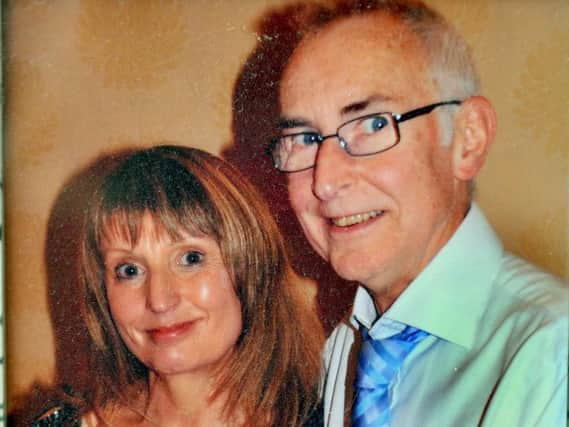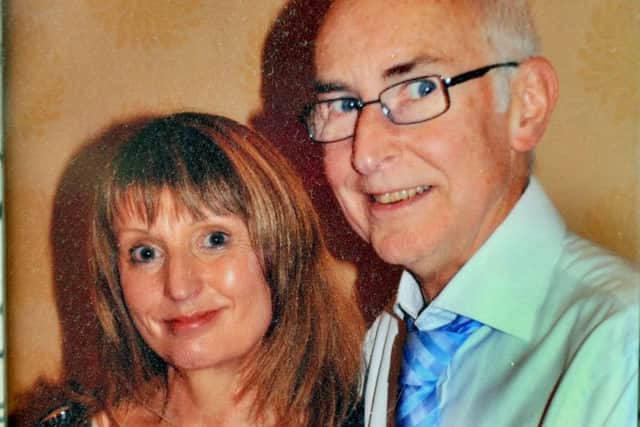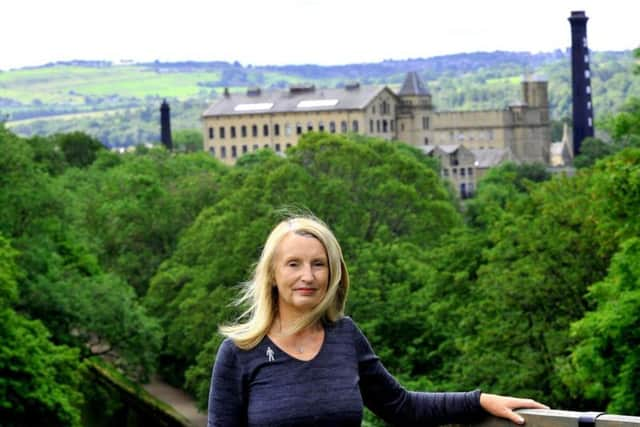Final act of courage for Yorkshire man killed by prostate cancer




By then, says his widow Janet Daykin, he had been reliant on the support of sticks or a wheelchair. But steadfast, he had trained every day, and built up the strength.
It was a short walk, to the hotel at the end of the road near their home in Bingley in West Yorkshire. But to the couple, in their final days together, it had meant the world. Because weeks later, and just a few short months after his diagnosis with prostate cancer, Mr Batty died at the age of 65.
Advertisement
Hide AdAdvertisement
Hide AdThe disease, affecting one in eight men, is one of the country’s biggest killers and claims nearly 1,000 lives each year in Yorkshire and the Humber alone. There are almost 30,000 men living with the condition in the region, and 325,000 in England.
Yet despite this, says Mrs Daykin nearly a decade after her husband’s death, there is still a fear of talking about illness and dying, in particular among men of a certain age. Society must be prepared to open up about such difficult discussions, she says, about the risk factors and symptoms, and what to look out for.


Only then, she adds, can diagnosis be prevented from becoming a death sentence.
A lonely place
“Mike was diagnosed completely out of the blue,” says Mrs Daykin, 65. “We were suddenly thrown into a confusion.
Advertisement
Hide AdAdvertisement
Hide Ad“People didn’t talk about it, which made it a very lonely place. For a long time, you deal with all sorts of emotions and pain. That could have been different.
“As a society, we shy away from talking about death. Afterwards, people didn’t know what to say, so they didn’t say anything.
“It’s the English way – people don’t want to upset you. We’ve got to get beyond that.
“The next generation will be so much more open to talking about it. In the meantime, if we don’t do something, this will be the biggest cancer killer by 2030.”
A second chance
Advertisement
Hide AdAdvertisement
Hide AdThe couple had met later in life, and while they had been together nearly 19 years when Mr Batty died in 2010, they were married for only four.
Mrs Daykin smiles as she talks of the summer evenings they shared, walking along the canal near their home, and glasses of wine at Bingley Locks to escape the chaos of home renovations.
Opening their wedding album, she laughs out loud. The couple had planned a low-key wedding, but the Sri Lankan hotel they chose had been quite insistent on traditional staff dress.
For both of them, it had been a second marriage, a second chance. They had met as Mrs Daykin struggled to take down a bulky garden fence. Mr Batty, driving past, had pulled over to help.
Standing strong
Advertisement
Hide AdAdvertisement
Hide AdThe quantity surveyor had been very much someone who liked to fix things, says Mrs Daykin, be it in rebuilding a garden wall or in wiping away the pain of his cancer diagnosis.
“A few days before he died, he called my son in and gave him directions on how to change some doors,” she said. “He didn’t want people to think that was the best he could do for me.
“He always liked to fix problems. That was something we all struggled with, towards the end, when it couldn’t be fixed.
“I knew I had to stay strong. I would cry on the way to the hospital, then wash my face and put on a smile.
Advertisement
Hide AdAdvertisement
Hide Ad“I’m sure we got good medical care, I’m sure things couldn’t have been any different. It would have been better not to have seen such a lonely and confusing time.”
Support network
After her husband’s death, Mrs Daykin started working with other wives and partners affected by the disease, offering one-to-one support through the charity, Prostate Cancer UK.
On Saturday next weekend, she will join hundreds at the March for Men at Roundhay Park in Leeds, one of 10 events across the nation.
“We are beginning to talk more now about living with and after prostate cancer, where we used to help people dying,” she said.
Advertisement
Hide AdAdvertisement
Hide Ad“Some people talk about it a lot. Some plan their funerals. We dealt with it one day at a time.
“It was hard, knowing what was going to happen, but never wanting to own up to it. We need to talk, and we need to recognise the risk factors, so that we are looking at a cure rather than a death sentence.”
Prostate Cancer UK March for Men
Hundreds of people are set to join Prostate Cancer UK’s March for Men at Roundhay Park in Leeds next weekend.
Families will walk in tribute on Saturday to those they have lost and raising funds for research.
Advertisement
Hide AdAdvertisement
Hide AdThe charity’s chief executive Angela Culhane said: “We stand with men and for men - when diagnosis isn’t good enough, to fund research breakthroughs to provide better treatments, to campaign for better care, and with direct help through our support services.
"The fight against prostate cancer, a disease that kills one man every 45 minutes, is a purpose worth uniting for, and we want to continue making strides to combat this disease.”